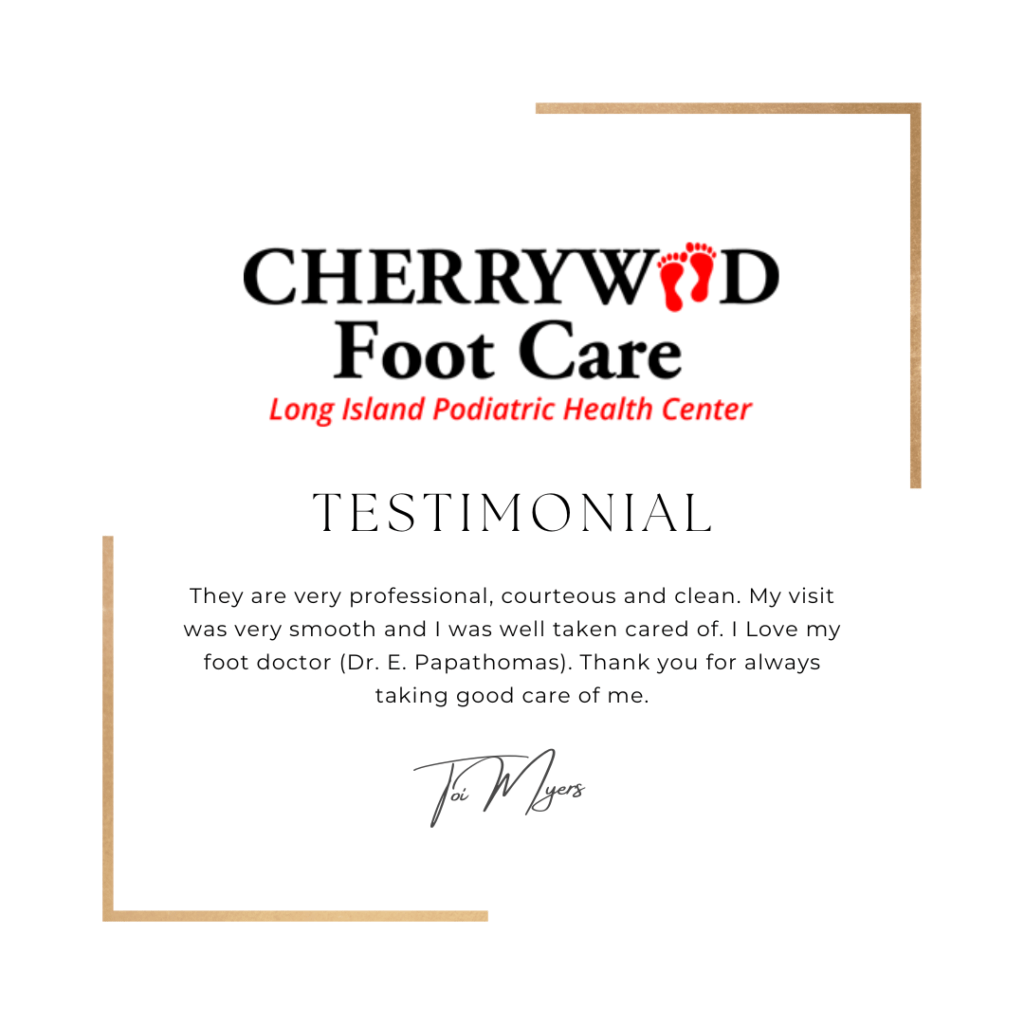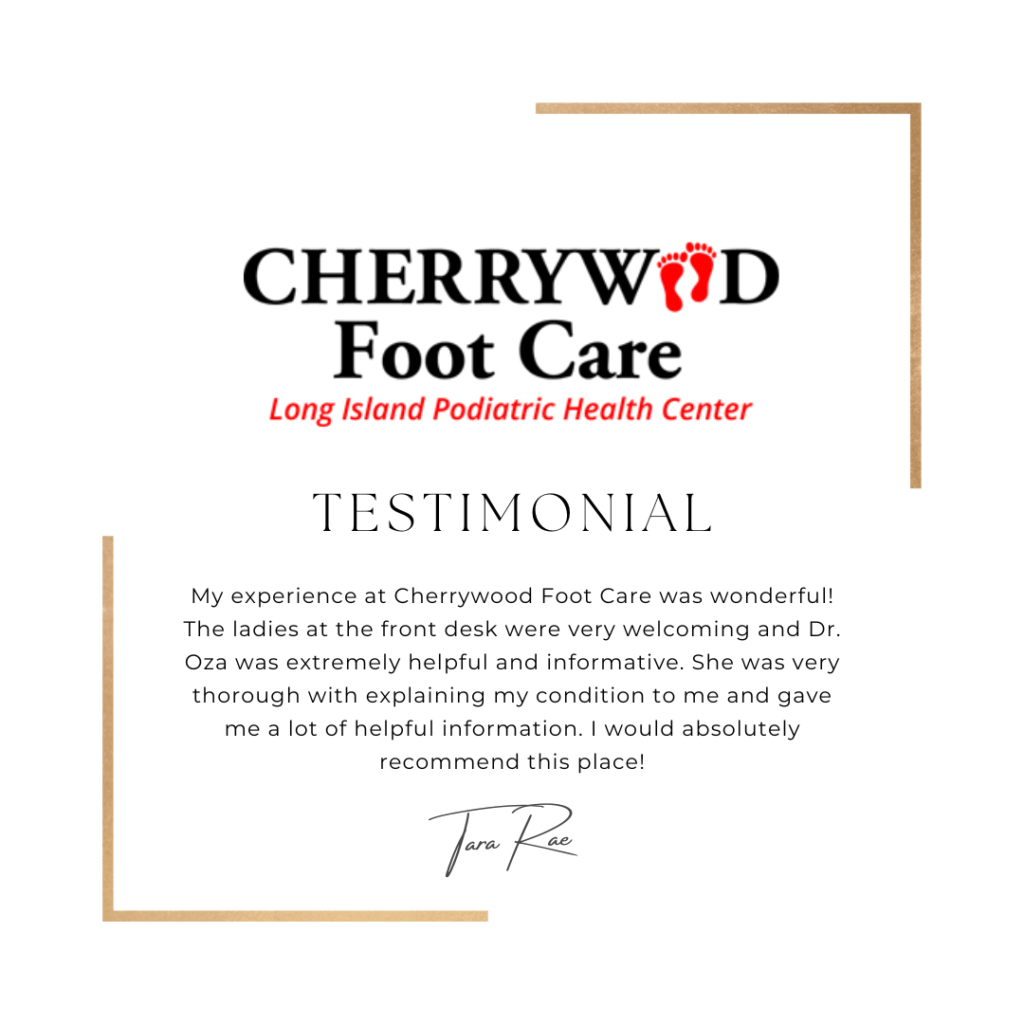Bunion Treatment in Wantagh
SCHEDULE YOUR APPOINTMENT BY CLICKING THE BUTTON:

WELCOME TO CHERRYWOOD FOOT CARE – Bunion Treatment in Wantagh
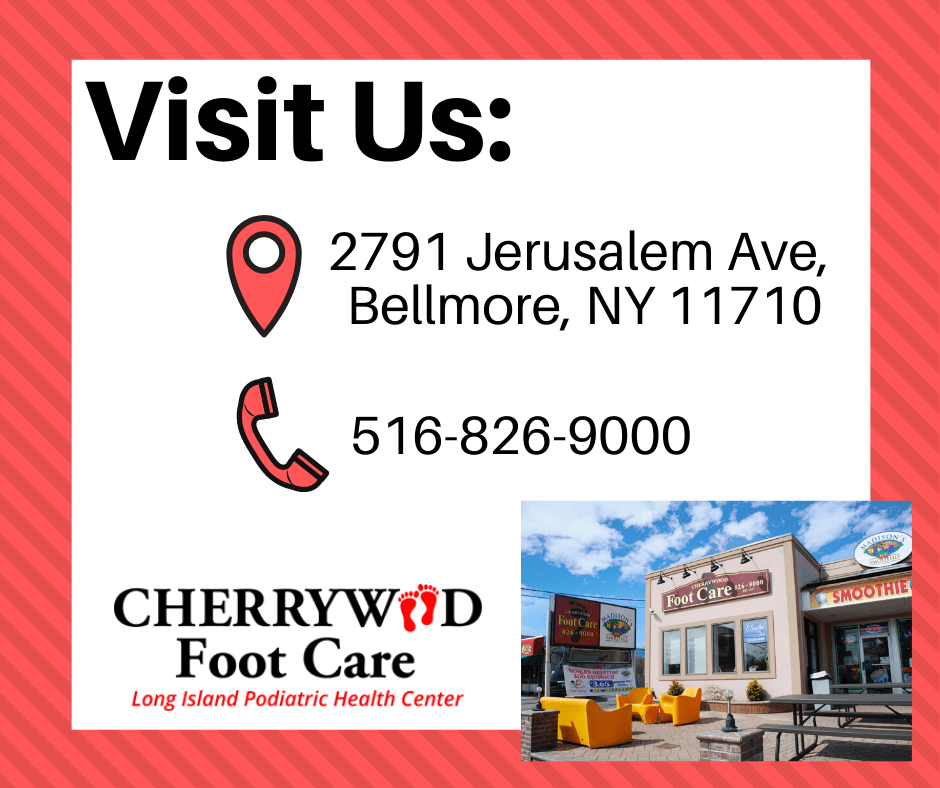
Dr. Joseph Burke and his team at Cherrywood Foot Care serving the communities of Bellmore, North Bellmore, Merrick, Wantagh, and East Meadow utilizes the latest cutting-edge podiatric technologies, from diagnostic ultrasound, digital radiology, and Noveon laser technology for toenail fungus treatment, to shock wave therapy for heel pain and the minimally invasive surgical procedure, endoscopic plantar fasciotomy. Dr. Burke, our doctor for Bunion Treatment in Wantagh, specializes in the biomechanics of the foot, including custom orthotics and surgical correction of foot deformities.
WHAT CHERRYWOOD FOOT CARE OFFERS
From routine checkups to laser treatments to surgical procedures, Cherrywood Foot Care is equipped to handle all your podiatric needs. To help you understand your options, we’ve included descriptions of some of our leading services on this page.
RELATED LINKS:
- Conditions We Treat
- Diabetic Footcare
- Digital X-Rays
- Extracorporeal Shock Wave
- Foot Surgery
- Laser Treatment
- Orthotics
- Surgical Procedures
- Therapies
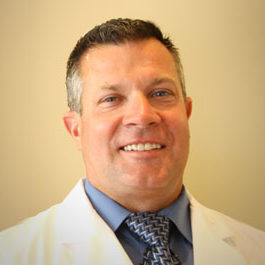
DR. JOSEPH BURKE, DPM, FACFS, ABPOPPM
Cherrywood Foot Care has been a staple of the Long Island community for more than a quarter-century. The practice operates a state-of-the-art facility in the Wantagh/Bellmore area incorporating all the latest podiatric advancements.
Dr. Burke’s interest in podiatry began because of his high school and college experience in track at Rutgers University. Requiring foot treatment himself, Dr. Burke realized an interest in the profession. Upon completion of a double major in biology and psychology at Rutgers, he entered the New York College of Podiatric Medicine, where he was honored magna cum laude in 1985, before successfully completing a surgical/medical residency program at Peninsula Hospital Center in New York.
Dr. Burke, our doctor for Bunion Treatment in Wantagh, is board certified in two specialties in podiatry and is a fellow of both The American Academy of Foot Surgeons and The American Academy of Foot Orthopedists and Primary Podiatric Medicine. He is a diplomat of The American Board of Podiatric Surgery and the American Board of Podiatric Orthopedics and Primary Podiatric Medicine.
Dr. Burke specializes in the biomechanics of the foot, including custom-orthotics therapy and surgical correction of foot deformities. He has advanced training in specialized podiatric techniques including Shockwave Therapy for heel pain and a minimally invasive surgical technique called Endoscopic Plantar Fasciotomy, using micro cameras. His office is one of the first to use the new Noveon Laser Therapy in the treatment of fungus toenails.
Dr. Burke is a member in good standing at both of the hospitals he is associated with: North Shore at Syosset Hospital Center and St. Joseph Hosptial. He is also associated with the Nassau County Podiatric Medical Association.
Dr. Burke is married, remains fit as a recreational runner, enjoys boating and is a certified scuba diver.
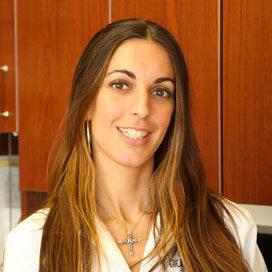
DR. ERICA PAPATHOMAS
Erica Papathomas, DPM, an experienced doctor for Bunion Treatment in Wantagh, graduated from St. John’s University with a Bachelor of Science degree in biology as a major and chemistry as a minor. She then attended the New York College of Podiatric Medicine, where she graduated with her DPM with honors. Thereafter, she received her Podiatric surgical training at Mount Sinai Hospital, which included an orthopedic trauma rotation working closely with high ranked podiatric and orthopedic surgeons. Dr. Papathomas is well trained in both forefoot and rearfoot surgery.
Dr. Papathomas is licensed in New York and board certified by The American Board of Podiatric Surgery in foot and ankle surgery. She is a member of The American Podiatric Medical Association. Dr. Papathomas is currently on staff at Mount Sinai Hospital of Queens and St. Joseph Hospital in Bethpage.
Integrity, teamwork, leadership and excellence represent essential principles in every aspect of her life. Dr. Papathomas applies and upholds these standards as a dedicated student, resident, and an active contributor to the community.

Recent Blog Posts From Our Doctor for Bunion Treatment in Wantagh
BUNIONS
A bunion is a bone deformity caused by an enlargement of the joint at the base and side of the big toe (metatarsophalangeal joint).
Bunions form when the toe moves out of place. The enlargement and its protuberance cause friction and pressure as they rub against footwear. Over time, the movement of the big toe angles in toward the other toes, sometimes overlapping a third toe (known as Hallux Valgus). The growing enlargement or protuberance then causes more irritation or inflammation. In some cases, the big toe moves toward the second toe and rotates or twists (known as Hallus Abducto Valgus). Bunions can also lead to other toe deformities, such as hammertoe.
Many people with bunions suffer from discomfort and pain from the constant irritation, rubbing and friction of the enlargement against shoes. The skin over the toe becomes red and tender. Because this joint flexes with every step, the bigger the bunion gets, the more it hurts to walk. Over time, bursitis or arthritis may set in, the skin on the bottom of the foot may become thicker, and everyday walking may become difficult—all contributing to chronic pain.
Wearing shoes that are too tight is the leading cause of bunions. Bunions are not hereditary, but they do tend to run in families, usually because of a faulty foot structure. Foot injuries, neuromuscular problems, flat feet, and pronated feet can contribute to their formation. It is estimated that bunions occur in 33 percent of the population in Western countries.
Bunion Treatment in Wantagh
Because they are bone deformities, bunions do not resolve by themselves. The goal for bunion treatment is twofold: Firstly, to relieve the pressure and pain caused by irritations. Secondly, to stop any progressive growth of the enlargement. Commonly used methods for reducing pressure and pain caused by bunions include:
- Protective padding, often made from felt material, to eliminate the friction against shoes and help alleviate inflammation and skin problems.
- Removal of corns and calluses on the foot.
- Changing to carefully fitted footwear designed to accommodate the bunion and not contribute toward its growth.
- Orthotic devices—both over-the-counter and custom-made—to help stabilize the joint and place the foot in the correct position for walking and standing.
- Exercises to maintain joint mobility and prevent stiffness or arthritis.
- Splints for nighttime wear to help the toes and joint align properly. This is often recommended for adolescents with bunions, because their bone development may still be adaptable.
Surgical Treatment
Depending on the size of the enlargement, misalignment of the toe, and pain experienced, conservative treatments may not be adequate to prevent progressive damage from bunions. In these cases, bunion surgery, known as a bunionectomy, may be advised to remove the bunion and realign the toe.
For More Information
Read our blog on Beauty And The… Bunion? Five Important Facts About Bunions
BUNION PREVENTION TIPS
A bunion is a bump that forms at the base of your big toe. Bunions are a very common condition that can cause discomfort and negatively impact your confidence. While not every bunion can be prevented, many can! If you are starting to form bunions, look for Bunion Treatment in Wantagh at Cherrywood Foot Care!
Bunion Prevention Tips
Bunions can be very annoying, but there are things you can do to deal with them so they won’t cause you pain or hinder your mobility:
- Wear comfortable shoes – If your shoes cause you any pain around your bunion, you should change them. Bunion pain is caused by an increase in pressure in the area, so if you relieve that pressure you won’t have that pain.
- Get wider shoes – If the toe box in your shoe is too narrow, it may push your toes together to a point. Your shoes should have a wide enough toe box so that it easily fits your forefoot and allows your toes to rest comfortably.
- Avoid high heeled shoes – While heels are fashionable, they’re not good for your feet. If you want to wear them, you should do so in moderation. High heels can force your toes together in the front of your shoe, causing unwanted pressure.
- Use padding – If bunions become painful and start bothering you, you can put a cushion around the bunion. A podiatrist in Massapequa can help you find some braces to help protect your bunion.
- Rest – Your feet need a break sometimes! If you’re at home or at work you should try to take some time to relax your feet and slip off your shoes, especially if you have to wear tight shoes or high heels.
Bunions develop very slowly, so it may not be too late to prevent them from worsening! These simple tips can make a big difference. Keep track of your foot shape over time to monitor any bunion progression. You can also do exercises to strengthen your feet. If you are worried about developing bunions or you already have them, contact our Bunion Treatment in Wantagh so you can get back on your feet!
Bunion Treatment in Wantagh
If you are looking for Bunion Treatment in Wantagh, contact Cherrywood Foot Care! Our team can help you deal with any foot pain you may be experiencing! We strive to provide you with the highest quality care so you can enjoy a pain free life!

CAN BUNIONS CAUSE OTHER FOOT PROBLEMS?
At Cherrywood Foot Care, we understand the complications that can arise when bunions become present. Working with our Bunion Treatment in Wantagh to manage bunions can help lower the chances of other foot conditions arising. You can trust that our team of professionals can give you the care you need to avoid unnecessary pain!
Impact of Bunions
A bunion is a bone deformity that occurs due to a joint enlargement at the side and base of the big toe. They can lead to redness, swelling, and soreness around the big toe joint, and even limit movement as well. Over time, bunions can cause your big toe to become angled over your smaller toes. While bunions themselves can be painful to deal with, but they can also lead to a variety of other issues that include the below.
- Bursitis: One possible bunion related complication is the development of bursitis. Bursae are fluid-filled sacs that provide a cushion to the bones near your joints. You have about 160 bursae in your body, and when one becomes inflamed, it is known as bursitis. One of the bursae in your body is located near the joint on your big toe, and bunions can cause this to become inflamed, leading to pain and discomfort.
- Hammertoe: This condition occurs when there is an abnormal bend in the middle joint of one of your toes, and leads to the inability of the said toe to stick out straight. The abnormal bending is caused by an imbalance of the muscles in your toe, which can be a direct result of bunions.
- Metatarsalgia: Metatarsalgia is a condition that occurs when the small nerves in your toes become inflamed and cause pain. The inflammation of these nerves occurs when the bones in your feet begin to press against the other. As bunions lead to a misalignment of your big toe, they can be the cause of the nerves getting pinched.
Bunion Treatment in Wantagh
Bunions can make the area around your big to become painful and irritated due to activities as simple as walking. They can also cause a multitude of other issues to appear as well. Luckily, our Bunion Treatment in Wantagh can help treat any issues you may face. Don’t let bunions continue to drag you down, contact us today.
OFFICE HOURS
For your convenience, our office is open during normal business hours, as well as evenings during the week and Saturdays. Please call our office today to schedule an appointment. We offer prompt scheduling and same-day appointments are usually available.
Monday: 9 a.m. – 5 p.m.
Tuesday: 9 a.m. – 9 p.m.
Wednesday: 9 a.m. – 9 p.m.
Thursday: 9 a.m. – 9 p.m.
Friday: 9 a.m. – 5 p.m.
Saturday: 8 a.m. – 1 p.m.
Sunday: Closed
BOOK YOUR APPOINTMENT TODAY WITH OUR FOOT SPECIALIST IN WANTAGH
Call to make an appointment at 516-826-9000
